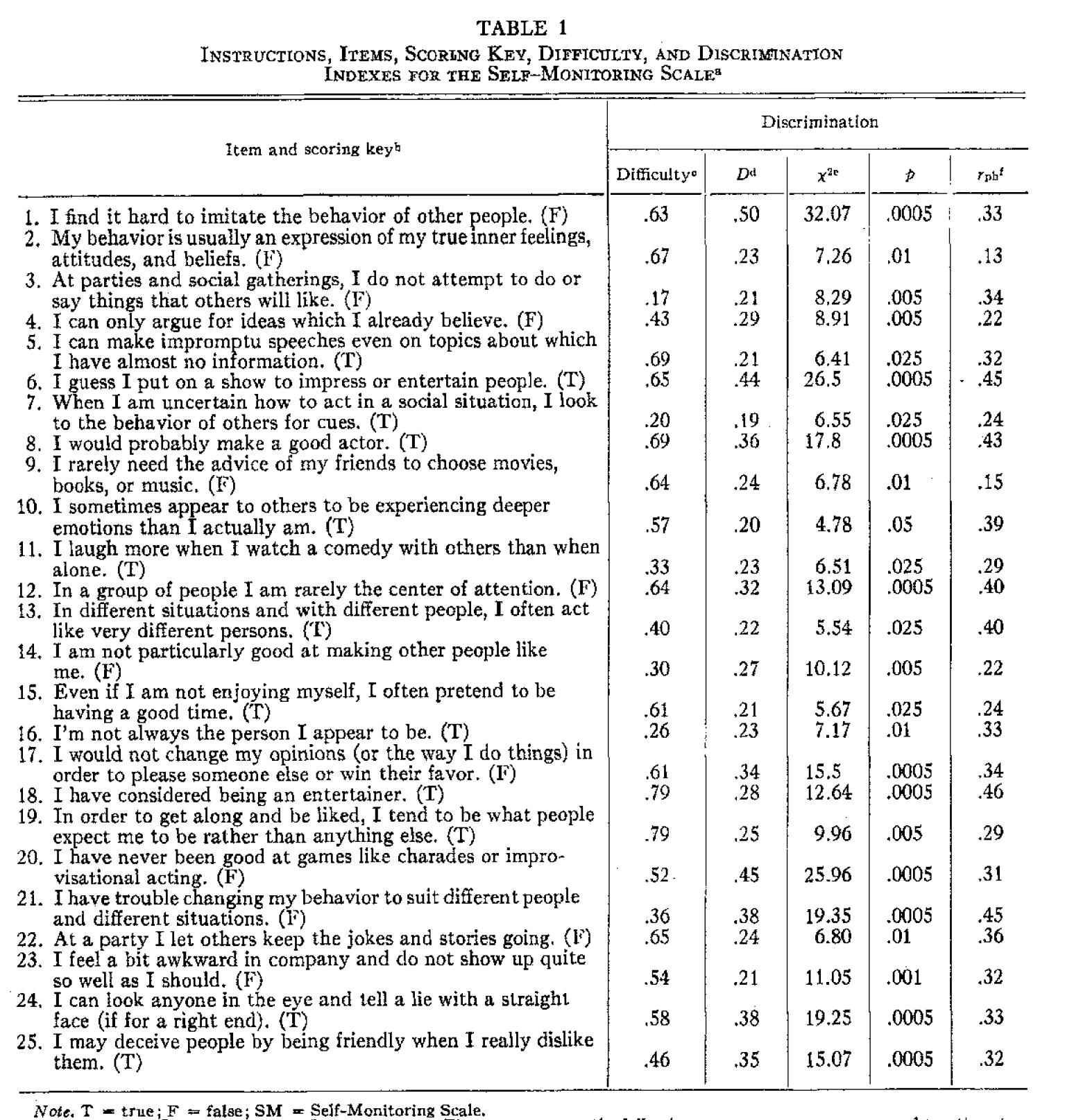Snyder 1974 - Self-monitoring of expressive behavior
Snyder, M. (1974). Self-monitoring of expressive behavior. Journal of personality and social psychology, 30(4), 526.
Summary
Self-monitoring is a construct that refers to the ability of a person to ascertain socially appropriate behavior for a given situation and modify their behavior so as to be socially appropriate. For self-monitoring to take place, an individual must be able to accurately derive what is appropriate in a situation. Doing so requires a certain amount of awareness of both verbal and nonverbal cues. Furthermore, an individual needs to understand how their future potential actions might be interpreted by others. High-self monitoring individuals understand how they can modify their behavior so as to be socially appropriate, and are willing to do so. The author states that this is the result of a “desire to maintain social approval.” It seems rational to assume that they could also have a desire to increase social approval. Self-monitoring is different from “need for approval” in that high need-for-approval individuals might be motivated to modify their behavior so as to be more socially acceptable, but they might not have the self-control or skill necessary to do so. High self-monitors are both willing and able to modify their behavior based on surrounding social cues. The author develops a 25-item scale for measuring Self-Monitoring. Actors tested higher than students for self-monitoring. Inpatients at a psychiatric ward tested significantly lower. High self-monitor individuals were better able to “act” emotions that were accurately judged by third-parties. Finally, high self-monitor participants sought social cues more frequently than did low self-monitor participants.
Application
High self-monitoring seems like a dual-edged sword. On the one hand, self-monitoring allows individuals to present a “better self,” with all its attached social rewards. At the same time, I have to wonder about possible identity conflict and issues of authenticity. The author writes, “The expressive behavior of self-monitoring individuals should be more reflective of an internal affect state when it is generated in a situation with minimal incentives for, and cues to, self-monitoring.” A manager seeking honest feedback might be better off getting it from a low self-monitor than a high self-monitor.
